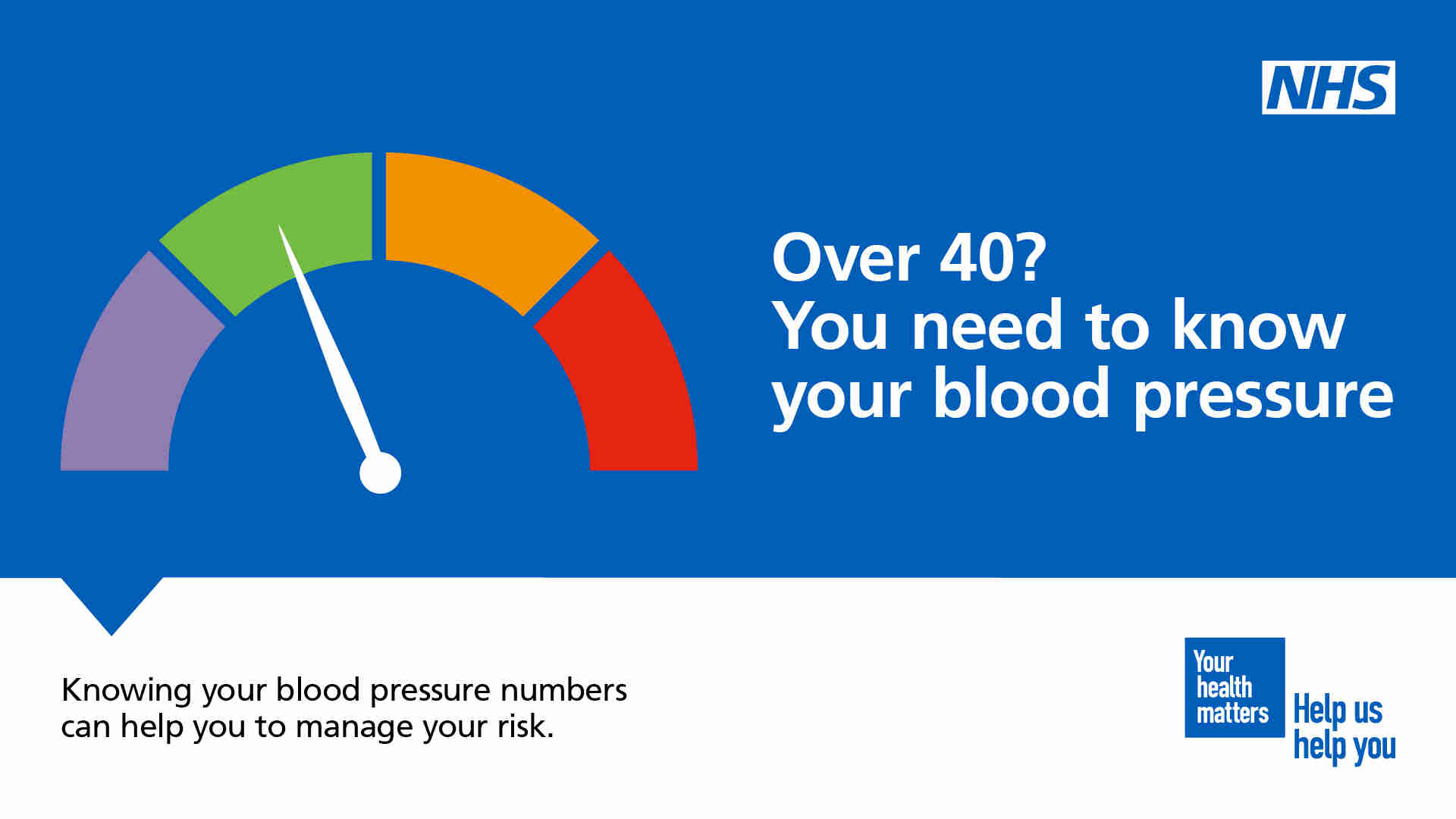High blood pressure rarely shows symptoms. Find out how to get checked.

What is high blood pressure?
Blood pressure is recorded with 2 numbers. The systolic pressure (higher number) is the force at which your heart pumps blood around your body.
The diastolic pressure (lower number) is the resistance to the blood flow in the blood vessels between heartbeats.
Risks of high blood pressure
If your blood pressure is too high, it puts extra strain on your blood vessels, heart, and other organs, such as the brain, kidneys, and eyes.
Persistent high blood pressure can increase your risk of several serious and potentially life-threatening health conditions.
If you have high blood pressure, reducing it even a small amount can help lower your risk of these health conditions.
Check your blood pressure
The only way of knowing whether you have high blood pressure is to have a blood pressure test.
All adults over 40 are advised to have their blood pressure checked at least every 5 years.
Getting this done is easy and could save your life.
Where can I get my blood pressure tested?
· at your GP surgery
· at some pharmacies
· You can also check your blood pressure yourself with a home blood pressure monitor.
Treatment for high blood pressure.
Doctors can help you keep your blood pressure to a safe level using:
· lifestyle changes
· medicines
What works best is different for each person. Talk to your doctor to help you decide about treatment.
Lifestyle changes to reduce blood pressure.
These lifestyle changes can help prevent and lower high blood pressure:
· reduce the amount of salt you eat and have a generally healthy diet.
· cut back on alcohol.
· lose weight if you're overweight.
· exercise regularly.
· cut down on caffeine.
· stop smoking.
For more information please visit https://www.mecclink.co.uk/yorkshire-humber/
© 2025 Copyright One Vision Hive and Holland & James.



